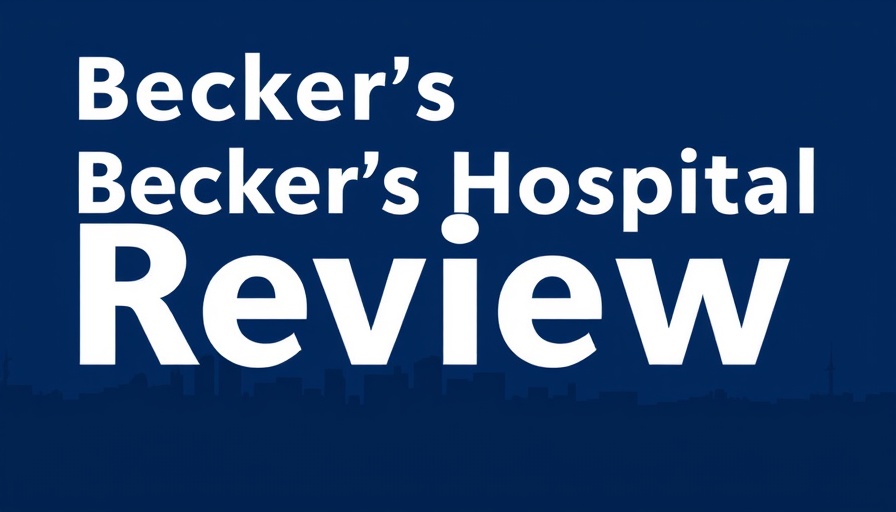
A Critical Gap in Cardiac Care: Understanding the Underutilization of Surgical Ablation
Imagine undergoing a life-saving surgery only to find that a vital procedure that could maximize your chances of survival was not included. For patients with atrial fibrillation undergoing coronary artery bypass grafting (CABG), this is the reality. Despite emerging evidence suggesting that surgical ablation significantly improves survival rates, only about one in four eligible patients receive this critical intervention.
Recent findings published in the Annals of Thoracic Surgery illustrate a stark disparity, revealing that from 2008 to 2019, merely 22% of Medicare patients with atrial fibrillation who underwent CABG were given surgical ablation. This rate even dipped to 27% in 2019. If surgical ablation can improve patient survival, what is preventing its wider adoption?
Barriers to Implementing Surgical Ablation
According to Dr. Justin Schaffer, a leading researcher in the field, the primary barrier to the adoption of surgical ablation stems from perceived risks associated with additional surgical time. Performing surgical ablation during CABG does extend the duration of surgery—risks that some surgeons believe deters its implementation. Although studies have demonstrated minimal increase in operative risk when ablation is performed alongside cardiac surgery, the fear of added complications persists.
Moreover, the need for specialized equipment, such as ablation generators, creates a capital expenditure challenge for health systems. This requirement adds another layer of complexity for hospitals that need to procure cutting-edge technology to facilitate surgical ablation.
Why Awareness Matters: The Value of Surgical Ablation
Health systems must recognize the downstream benefits of surgical ablation during CABG procedures. Successful implementation of this technique could reduce the recurrence of atrial fibrillation, lowering readmission rates tied to atrial fibrillation-related issues. Given the increasing emphasis on outcomes-based care, administrators can leverage the advantages of surgical ablation as a means to improve patient outcomes.
For example, fewer patient readmissions translate directly into improved health system efficiency and could lead to increased revenue through enhanced Medicare reimbursement rates. With his focus on survival as the primary endpoint, Dr. Schaffer emphasizes that beyond just survival rates, ablation can enhance the holistic care experience for patients by reducing their overall cardiac burden.
Actions for Healthcare Providers
For healthcare providers, addressing these barriers requires proactive solutions. Incorporating surgical ablation as a standard practice necessitates collaboration across surgical teams, administrators, and the health systems handling the resources for such procedures. Engaging in open discussions at organizational levels can help uncover additional roadblocks, from operational staff concerns to the efficacy doubts some may have about ablation.
Furthermore, training programs that emphasize the importance and efficacy of surgical ablation can cultivate more skilled surgical teams willing to adopt such practices confidently. Educational efforts aimed at younger surgeons could significantly alter perceptions of risk while elevating the standard of care in cardiac surgery.
The Future of Cardiac Surgery: Embracing Innovation
As we look forward to the future of cardiac surgery, there is an exciting opportunity for providers to embrace technology that enhances surgical success rates. From patient engagement tools that empower informed decision-making to healthcare automation solutions that streamline operational efficiency, modern advancements can support better patient outcomes.
Moreover, with the shift towards telehealth and digital front desks, treatment options and follow-up care for patients are becoming more accessible, particularly for those in rural areas. As healthcare continues to evolve, integrating options like remote therapeutic monitoring (RTM) alongside surgical interventions could create comprehensive care pathways that offer patients better access to necessary treatments.
Final Thoughts on Surgical Opportunities in Cardiac Care
As more patients present with atrial fibrillation, it is crucial to educate healthcare professionals about the survival benefits associated with surgical ablation during CABG. By leveraging insights from recent studies and adopting modern healthcare tools, we have the potential to transform patient outcomes dramatically.
For healthcare professionals dedicated to enhancing cardiac care, advocating for the inclusion of surgical ablation could better serve patients and elevate the standards of clinical practice. Understanding the boundaries of tradition and confronting the challenges of modern care will ultimately lead to happier, healthier patients. Let's pave the way for better practices and outcomes in cardiac surgery today.
Join the conversation on the future of cardiac care by subscribing to our health newsletter for more insights on innovations in patient treatment and surgical best practices!
 Add Row
Add Row  Add
Add 




Write A Comment